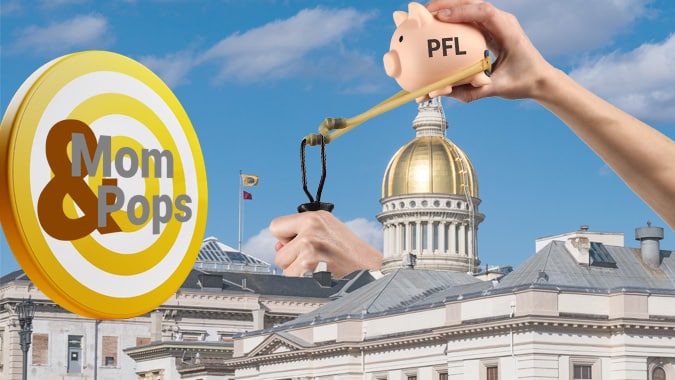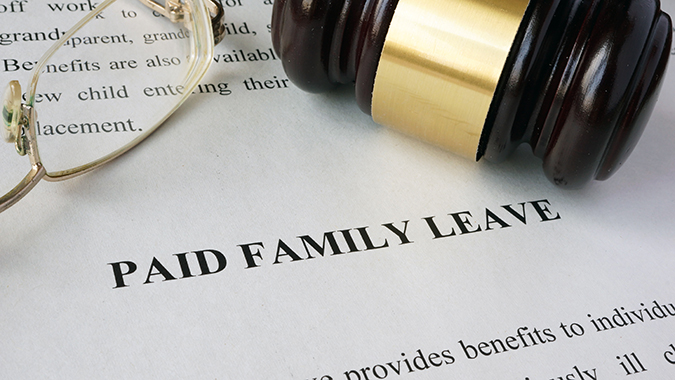In 2008, Gov. Jon Corzine signed the New Jersey Family Leave Act that struck a balance between worker protections and credible business concerns, based on months of negotiation between lawmakers.
Now a new bill threatens that compromise, which would hit New Jersey’s smallest businesses hard.
And while bill A-5166 never got a Senate vote in the recent lame duck legislative session – specifically because of the impact on small business – it will likely be a topic in the new legislative session.
“What we should do is honor an agreement that was founded in compromise for good reason,” said NJBIA President and CEO Michele Siekerka. “New Jersey businesses have only received more burdens since the Family Leave Act became law. This is not the time to add on to it.”
Additionally, supporters of expanding the Family Leave Act aren’t giving the full story about the proposed bill.
THE 4-1-1 ON PFL
During the lame duck session, NJBIA and other business groups strongly opposed bill A-5166 because it requires New Jersey’s smallest employers to comply with the job reinstatement provisions of the New Jersey Family Leave Act.
In short, it lowers the employee threshold for employers to provide up to 12 weeks of Family Leave from the current 30 to only five.
“Larger businesses are able to better provide coverage during a worker’s prolonged absence,” NJBIA Vice President of Government Affairs Elissa Frank said. “Most smaller businesses, however, are not financially equipped to bear the brunt of increased employee absenteeism and will likely experience higher labor costs resulting from the retaining and training of substitute workers.
“Anyone who supports this bill, at best, doesn’t understand the impacts of it on our mom-and-pops or, at worst, cannot credibly state that they support New Jersey small businesses.”
Thankfully for New Jersey small businesses, Senate President Nick Scutari declined to bring the bill up for a vote in the Senate out of concerns for them.
“We credit Senate President Scutari for recognizing the damage that this bill could do to our smallest employers,” NJBIA Chief Government Affairs Officer Christopher Emigholz said. “We’ve heard the same concerns from others in the Senate as well, on both sides of the aisle.
“In some extreme cases, it’s possible that worker who is taking the leave might not have an employer to come back to.”
SEPARATING FACT FROM FICTION
Supporters of expanded Family Leave contend that some 900,000 New Jersey workers who are paying Family Leave Insurance can’t use it under current law.
This is false.
Current law, however, does not require job reinstatement after the family leave period for employers with 30 or fewer employees.
“Under the new bill expanding Family Leave, a small business would be required to not only protect an employee’s job but ensure that they come back to the same exact position they left before going on leave," Frank said.
“If an employee doesn’t return to that same job, they would have a right to sue their employer under the bill. And those litigation costs can be unduly burdensome.”
Frank added that both small employers and their other employees working for them would be greatly impacted by the bill.
“Think about the added costs to train a new worker, who you then won’t be able to afford to keep after 12 weeks,” Frank said. “What if that temp worker was actually better at the job than the person going out on leave?
“Also think about the current employee who steps up and shows they can handle job responsibilities better than the person who went out on leave. These are cases that remove the right for the employer to make their own decision on what’s best for their business under the bill.”
WHAT THE DATA SAYS
A Star-Ledger Editorial Board op-ed supporting the expansion of Paid Family Leave this week cited a 2014 report of 18 New Jersey employers, by the Center for Economic and Policy Research, which said Family Leave had “no effect on productivity or turnover” over the course of the previous five years.
It also said that “only 2 of 18 felt the program negatively affected their profitability.”
Not noted by SLEB, however, is the 18 employers sampled in the study averaged nearly 1,500 employees – including one with 13,000 workers and another with 10,000 workers. The smallest employer in the study had 26 employees.
“This is all about the impact on our smallest businesses,” Frank said. “Of course, if you have hundreds or thousands of workers, you’re in a much better position to provide Paid Family Leave. But for our smallest employers – folks with 5, 10, 20 workers – it’s a completely different story.”
Siekerka added that what is lost in the conversation is how many more costs and burdens have been added to small business since the New Jersey Family Leave Act became law nearly 16 years ago.
“Since then, New Jersey businesses are paying a much higher minimum wage, they now must adhere to the most generous sick leave policy in the nation, they have seen their regulatory costs and energy costs skyrocket and they’ve only seen tax increases, including a more-than-$1 billion unemployment insurance increase since the COVID pandemic,” Siekerka said.
“And they’ve seen no property tax relief, even though they pay nearly half of the property taxes in the state.
“At some point, our policymakers need to recognize that our smallest businesses have the thinnest of margins and they are not some endless trough of cash to pick through.”
True to form, NJBIA’s 2024 Business Outlook Survey of more than 500 employers – mostly small businesses – found that only 32% of respondents reported profits for the year in 2023. At the same time, 44% reported a loss.
Their 2024 outlook for profits is also lukewarm. Only 37% said they believe they will make a profit, compared to 28% who anticipate they won’t. That net positive of 9% is the lowest outlook for profits in the survey since 2012.
TEMP WORKER IRONY
Perhaps poetically, supporters of the expansion of Paid Family Leave have contended that businesses should have no problem fielding temporary workers while permanent employees are out on extended PFL.
However, the new Temporary Workers Bill of Rights law, which took effect in August and was fought hard against by NJBIA, is currently decimating much of the industry and makes it that much more challenging for employers to hire temporary workers.
“There is a certain irony not lost on us that supporters of this bill are now urging small businesses to use temp workers, when many of those same supporters voted yes for a law that just about makes it impossible for businesses to use temp workers,” Emigholz said.




